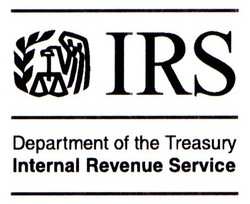IRS Wants Hundreds of Thousands in Excise Taxes
A storm is brewing between a number of Alaska Air Taxi Services and the IRS who says the fliers owe the government hundreds of thousands in back taxes. Specifically the IRS wants payment of a per-passenger excise tax. According to a report in The Alaska Dispatch the air taxi operators say they’ve been exempt from this form of tax for years and since the passengers have long ago gone their separate ways without the tax having been collected, it’s impossible for them to pay.

An excise tax is one that the customer pays in order to offset the cost to the company. The company makes no money on the charge, it ‘s simply passed through to the government. Cigarettes, alcohol, and fuel all have excise taxes built into the cost. In Alaska any passenger traveling on a qualified commercial flight would pay three excise taxes on their ticket or seat: a $3.70 tax for any "flight segment" (one takeoff and one landing), an $8.40 tax for flights beginning or ending in Alaska or Hawaii, and a 7.5 percent tax on the cost of a ticket.
At the heart of the issue is vague language in the Tax Code that the air taxi operators say the IRS is interpreting in a new way – leaving them responsible for these per passenger taxes that they can’t possibly collect retroactively.
The fliers claim they’ve been and should continue to be exempt from these taxes in part because the Tax Code excludes seaplanes and some ‘sightseeing’ flights. Moreover, aircraft weighing less than 6,000 pounds and (the majority of Alaska’s bush planes) operating on “nonestablished lines” are exempt.
There’s the rub. The IRS defines an "established line" as flights "operated with some degree of regularity between definite points. It does not require a strict regularity of schedule, that the full run is always made; and/or that a particular route is followed … The term implies that the person rendering the service maintains and exercises control over the direction, route, time, number of passengers carried, etc." By that definition, nearly any flight can be counted as operating on an established line.

On the other hand, The Federal Aviation Administration sees an air taxi operator who owns a single aircraft and specializes in dropping hunters in the Alaska wilderness as an "on-demand" air carrier: that pilot flies where he's needed, when he's needed. While that may sometimes entail visiting the same place twice in the space of a week, or a few times over the course of a year most would agree that such a service hardly constitutes an “established line.”
Joy Journeay, Executive Director of the 150-member Alaska Air Carriers Association, told the newspaper that the interpretation of the law has changed, leading to the sudden back taxes in recent audits. "The nebulous, ambiguous language is the problem with the IRS codes," she said. "For 49 years, they've said charters were exempt, and now they're saying they're not."
According to Journeay, one two-plane operation was recently audited to the tune of $250,000. A statement from the AACA noted another carrier had been fined $1.8 million. She said she knew of at least one operator who had to take out a substantial loan to pay back the errant taxes.
Worse yet are allegations that the IRS is threatening air taxi operators who owe back taxes based on a three year audit with an even more punitive seven-year audit if they dare to challenge the tax authority’s findings. Those allegations have prompted Sen. Mark Begich, D-Alaska,to enter the dispute. In june he sent a letter to U.S. Treasury Secretary Tim Geithner asking for an explanation of the audits' findings and the IRS’ alleged threats, saying:
“My greatest concern involves reports of IRS auditors threatening to make audits and penalties 'more painful' for businesses who challenge the imposition of these excise taxes based on what they believe is the misapplication of the Internal Revenue Code by IRS auditors. This type of intimidation tactic is completely inappropriate for small businesses seeking to understand and comply with a complex and at times unclear tax system.”
Both the AACA and individual operators have written to the IRS seeking clarification of the language but with no success. Senator Begich alluded to this as well in his letter noting air taxi operators are seemingly trying to comply but finding it difficult when the IRS interpretation and the FAA designation are in conflict, leading to confusion from those trying to navigate the complicated aviation tax law.
Journeay said the problem isn't limited to Alaska, either. She also said that she'd spoken with a lawyer from Nevada who was representing a client facing a similar threat in that state.
The National Air Transportation Association will hold a web seminar in July to help air carriers navigate the IRS audit process.
 ANN's Daily Aero-Linx (04.16.24)
ANN's Daily Aero-Linx (04.16.24) Aero-News: Quote of the Day (04.16.24)
Aero-News: Quote of the Day (04.16.24) Airborne 04.10.24: SnF24!, A50 Heritage Reveal, HeliCycle!, Montaer MC-01
Airborne 04.10.24: SnF24!, A50 Heritage Reveal, HeliCycle!, Montaer MC-01 Airborne 04.12.24: SnF24!, G100UL Is Here, Holy Micro, Plane Tags
Airborne 04.12.24: SnF24!, G100UL Is Here, Holy Micro, Plane Tags Airborne-Flight Training 04.17.24: Feds Need Controllers, Spirit Delay, Redbird
Airborne-Flight Training 04.17.24: Feds Need Controllers, Spirit Delay, Redbird




